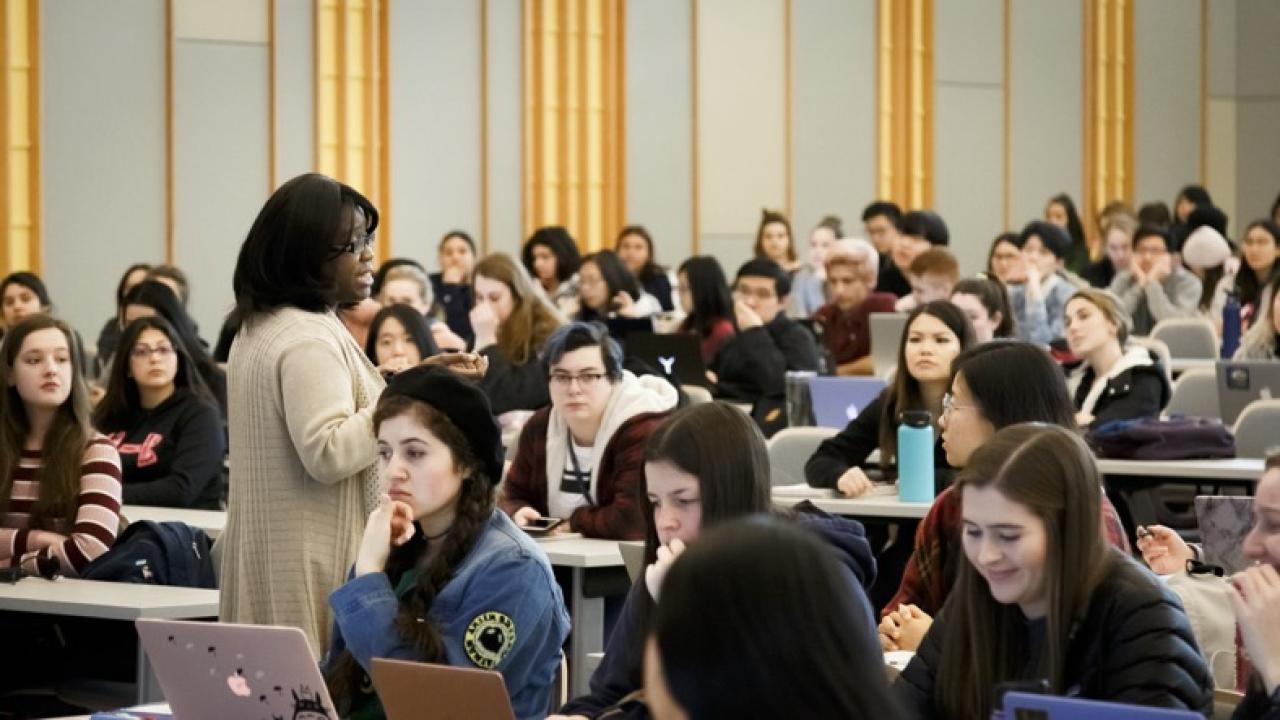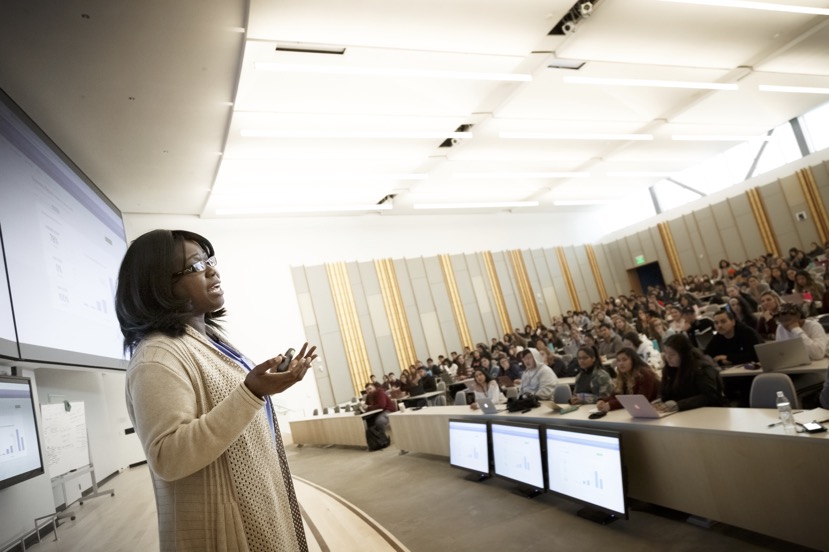
Faculty Spotlight
Dr. Bwalya Lungu, Department of Food Science and Technology
When Dr. Bwalya Lungu, Department of Food Science and Technology, wanted to explore ways to learn more about the student learning experience in her large-enrollment classes, she turned to Undergraduate Education’s Learning, Teaching, and Assessment (LTA) for the use of mid-quarter inquiry surveys (MQIs). In this blog interview and post, we learn more about Dr. Lungu, her approach to teaching and learning, and her use of MQIs.
Helping students develop critical thinking skills

Dr. Lungu began teaching at UC Davis in November of 2015. She teaches Food, Folklore, and Health, Principles of Food Science, Food Preservation, and is also a co-instructor of Food Law and Regulations. Focusing on pedagogical and discipline-related research, Dr. Lungu aims to design her classes to provide students with critical thinking skills and valuable knowledge to apply to real world food industry concepts.
She tells LTA that her approach to teaching has evolved over time, based on her interactions with students and seeing student change, especially over the pandemic. She passionately explains her philosophy that all students are unique; she believes in creating a stimulating environment for all students to thrive and learn while celebrating diversity. Her teaching philosophy thus places an emphasis on preparing students for the future rather than preparing for a midterm. She explains,
"you want the student to walk out of your class a critical thinker, because like it or not, when we get into the workplace we're not memorizing stuff and just repeating what we were told. We're out there to solve problems."
In parallel with this, she aims to foster a “community of learners” in which each student feels supported and motivated by the instructor, the TAs, and other students in class.
Fostering student engagement for deep learning
When reflecting on her teaching strategies, Dr. Lungu emphasizes the importance of remaining flexible and open-minded.
“I first had to tell myself, I need to learn to relax or not to be too hard on myself. I had to learn that I could fail and I could still get back up again and try again.”
She begins each quarter by holding an introductory class to let students know how the class will be structured, what will be expected, and which teaching strategies will be implemented.
-
Think-pair-share: for this active learning strategy, Dr. Lungu first poses a question related to the course material to the whole class; then, students discuss their answers in groups of 2-4, and finally they share their discussion with the rest of the class. Dr. Lungu has found that holding this classroom activity boosts student confidence and results in higher student engagement.
- Student response systems: Dr. Lungu is also proponent of implementing response systems, such as iClicker or Top Hat, to further engage students and receive classroom feedback. Not only does this strategy allow for a participation component in the class, but also allows for space for students to reflect on course information and locate areas that are strong or may need review.
- Visual learning strategies: Dr. Lungu also incorporates educational videos in her classes. She has found that students are then better able to relate classroom concepts to real-life examples, while increasing their understanding and engagement with the content.
These pedagogical strategies aim to motivate and engage students, further fostering their community of learners. She explains,
“you're always learning from those around you, whether they be students or other professors. But you are also always trying to teach somebody. There is something that you know, that somebody else doesn't know. There is something that you do well that somebody else doesn't. There's something they do well that you do not. And so we can all learn from one another that way.”
Using mid-quarter inquiry surveys to gather formative feedback
LTA’s MQIs allow instructors to gain immediate feedback throughout the quarter, providing the ability for instructors to make adjustments to their course structure, teaching style, or overall pedagogical teaching approach. Rather than providing evaluations at the end of the quarter, the unique structure of MQIs enables students to assess their respective classes within the duration of the course. This structure allows instructors to alter their course in response to student feedback while directly benefiting their current students. When asked about her experience the first time she implemented MQIs in her large classes, Dr. Lungu shares,
“I was amazed at the results… it was a learning experience for me. I get the feedback, I can go back and start making adjustments to my pedagogy, adjustments to how I'm interacting with the students, adjustment to how I'm grading, adjustments to everything that I'm doing. Because now I have that type of immediate feedback”.
Mid-Quarter Inquiries provide a space for instructors to reflect on their teaching style and classroom structure, adapting to best fit their current students’ needs. Dr. Lungu shares that MQIs have aided her in achieving her goals as an educator. In her words, “so at the end of the day, student learning and engagement is what I'm after. And so the MQI helps me to make adjustments to ensure that my students are continually learning. My students are engaged in the classroom and that at the end of the day they walk out with the thing, the tools, the skill sets that I wanted them to learn in the first place.”
Contact LTA to request an MQI
Curious about MQIs? Submit a consultation request for a mid-quarter inquiry survey to our LTA team.
